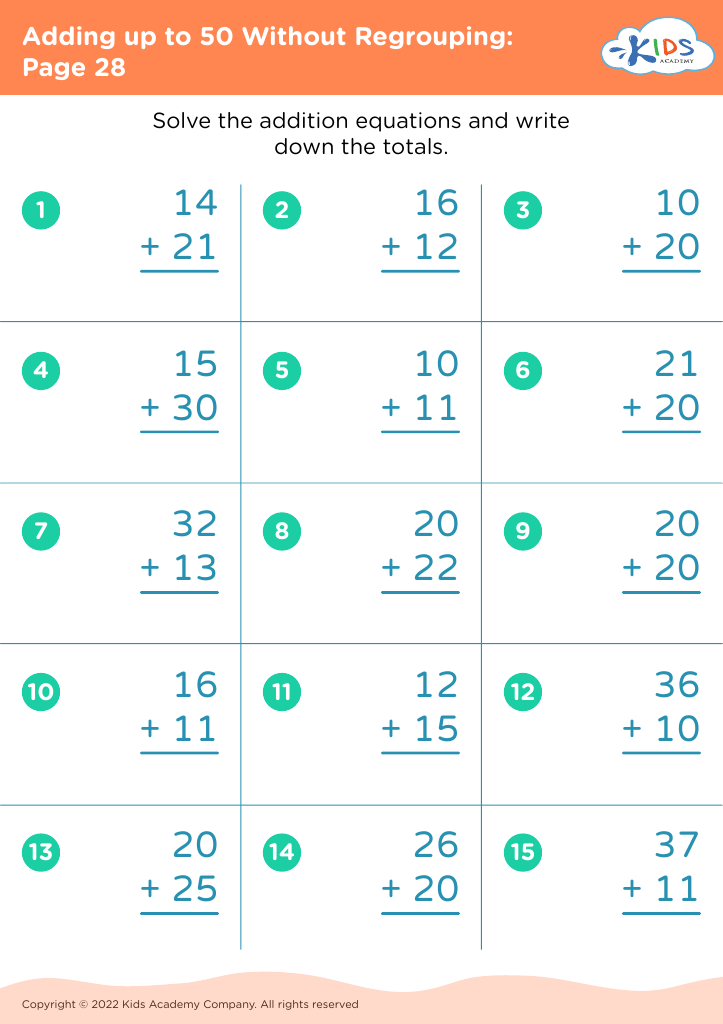Number Writing Practice Adding up to 50 Worksheets for Ages 7-8
4 filtered results
-
From - To
Enhance your child’s mathematical skills with our "Number Writing Practice Adding up to 50 Worksheets" designed specifically for ages 7-8. These engaging worksheets provide a fun way for kids to practice writing numbers while mastering addition concepts that total up to 50. Each worksheet focuses on improving number recognition, handwriting, and addition skills through a variety of exercises that encourage learning through play. Perfect for home or classroom use, these worksheets enhance cognitive development while building confidence. Equip your young learners with the tools they need for academic success in math! Download now and watch their skills flourish!
Number writing practice, particularly focusing on addition up to 50 for children aged 7-8, is crucial for several reasons. At this developmental stage, children are solidifying their foundational math skills, which serve as building blocks for more complex concepts. Mastering number writing not only aids in understanding addition but also sharpens fine motor skills, enhancing coordination and dexterity.
Parents and teachers should care about encouraging this practice because it fosters confidence. When children learn to write and understand numbers accurately, they feel more capable, leading to a positive attitude toward math, a subject that often intimidates young learners. Additionally, regular practice helps them recognize patterns and relationships between numbers, essential for problem-solving and critical thinking.
Moreover, learning to write and manipulate numbers prepares them for future academic challenges in mathematics and other disciplines. It also promotes discipline and perseverance, qualities that are essential for lifelong learning. Involving parents in this process by practicing together can strengthen family bonds and make learning enjoyable. Ultimately, supporting children in number writing practice ensures they develop a solid foundation, enhancing their overall academic success and enthusiasm for learning as they grow.

















